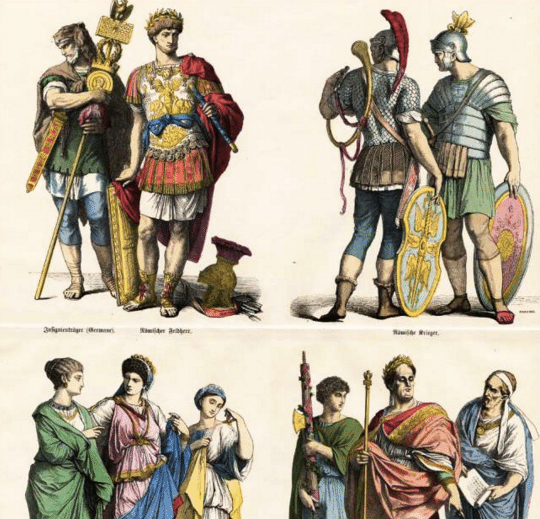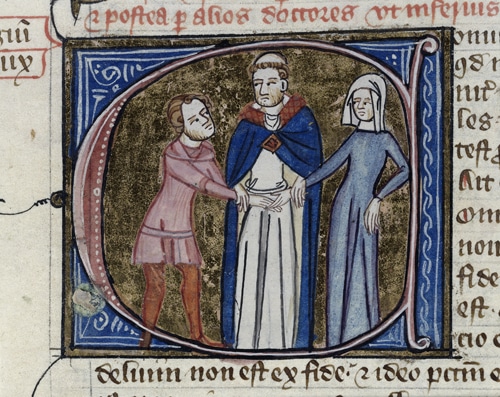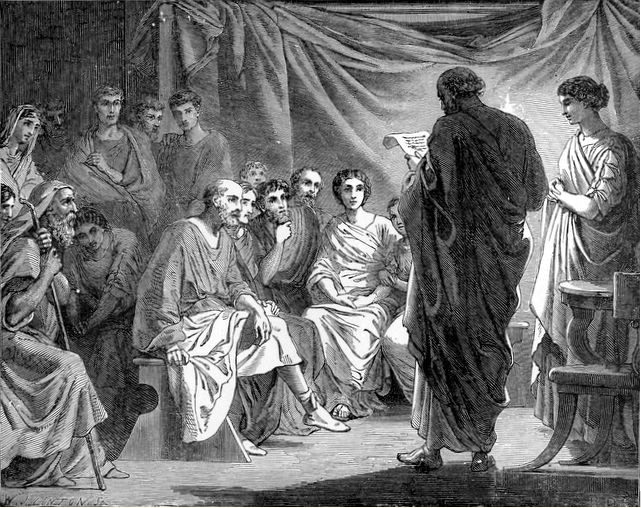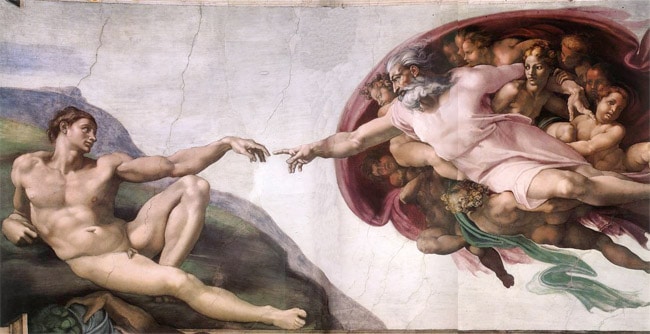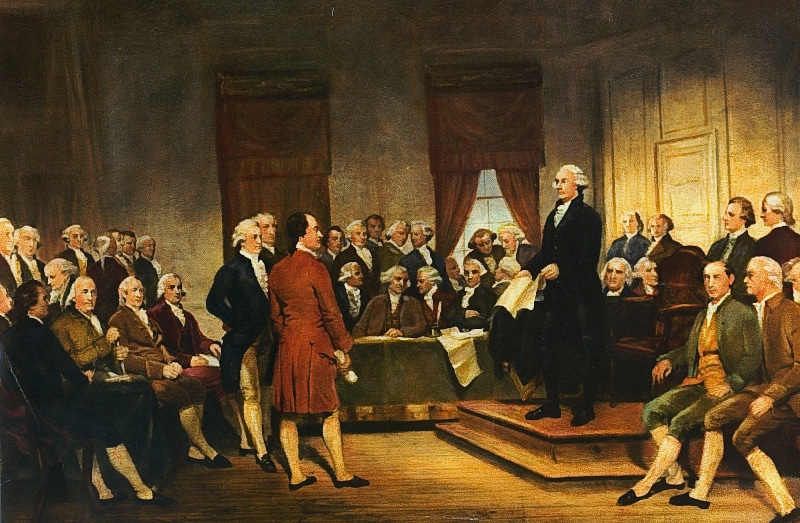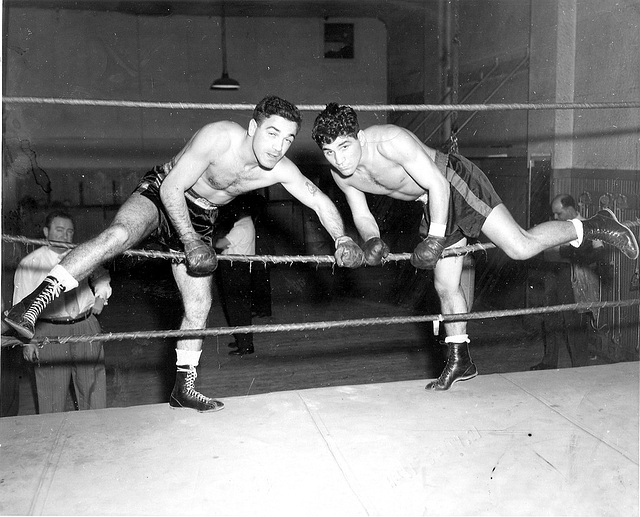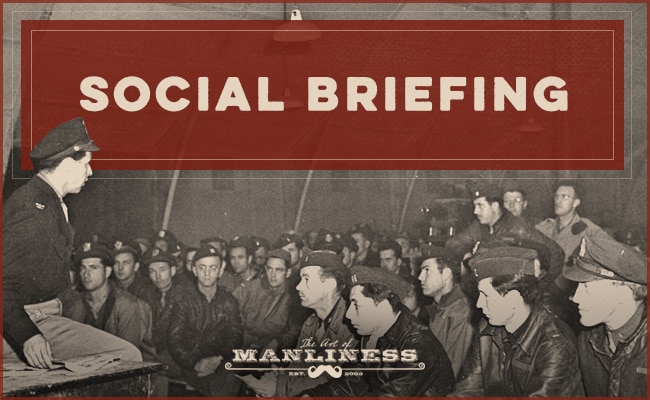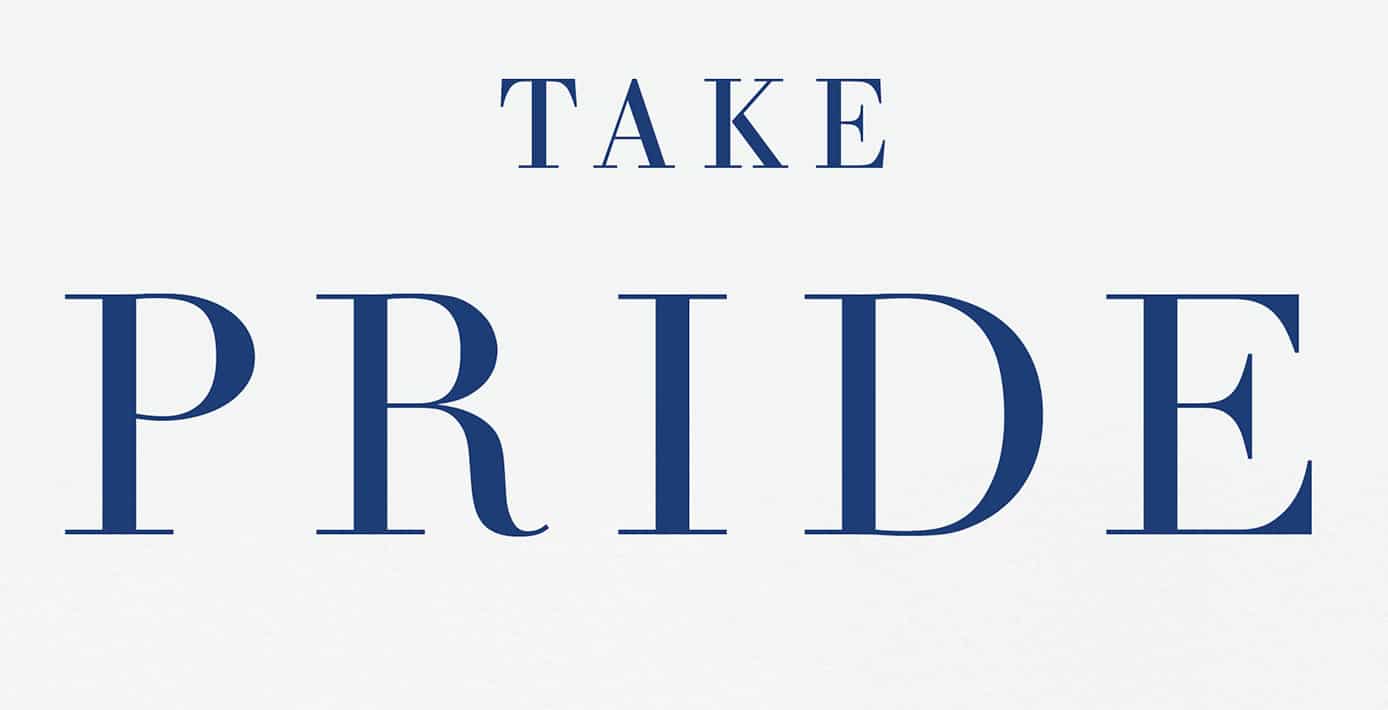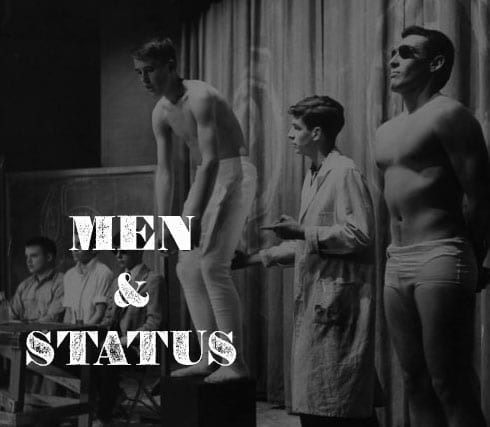
Welcome back to our series on male status. This series aims to help men understand the way status affects our behavior, and even physiology, so we can mitigate its ill effects, harness its positive ones, and generally get a handle on how best to manage its place in our lives.
In the previous posts in this series, we’ve delved deeply into the biological, neurological, and evolutionary origins and effects of the male status drive. We’ve seen that the status drive is deeply ingrained in the physiology of not only humans, but animals as well.
But there is a big difference between the human drive for status, and that of the rest of the animal kingdom: people can achieve and display status not only through physical traits, but also through material objects as well as intellectual and creative pursuits. Human status is sought and expressed not only through our biology, but also our culture. And since that culture has changed over the centuries, so has our understanding of the nature of status, the weight we’ve given its different manifestations, and the mechanisms by which it can be earned.
So today we will offer a big picture view of the major forces that have transformed the dynamics of our status drive from hunter-gatherer days through the 19th century. Let’s begin this tour through thousands of years of human history.
Social Signals: The Keystone Cultural Innovation of Human Status
As we saw in our previous article, status plays an important role in the survival and reproductive success of nearly all animals, particularly males. The status drive explains why male lions have their manes, male peacocks have their plumage, and bucks have their antlers; these features signal their genetic fitness to the ladies.
At a very primal level, humans have a similar signaling system. In our first post in this series, we talked about embodied status — the status one gets based on his or her genes and physical features. Just like other animals, we instinctively hold individuals with certain traits in higher regard. Women routinely rate taller, fitter, handsomer men as more desirable, and numerous studies have shown that these genetic lotto winners get more esteem from both their male and female peers, have more success at work, and make more money than the less physically fortunate.
While humans use these kinds of embodied signals (usually unconsciously) to determine status just like animals do, because of our increased intelligence and complex social lives, we can also signal and gain status in a variety of other ways. For example, an artist can gain and signal status by painting a picture or composing a hit song. A scientist can gain and signal status by inventing a drug that benefits the rest of humanity. And of course a successful businessman can gain and signal status with his wealth. We can also acquire and communicate our status by the clothes we wear, the people we know, the things we hang on our walls, the goods we buy, and even our tastes and opinions.
Sociologists call these non-embodied status markers social signals. And anthropologists posit that our ability to use these creative, intellectual, and material markers to communicate our value to others was the key cultural innovation that separated us from our primate relatives and laid the groundwork for complex human societies. The significance of this cultural development resides in the fact that social signals can be offered in less intimate and dangerous ways than the embodied variety.
Embodied status signals require animals (including humans) to be up close and personal. You need to interact face-to-face and possibly engage in potentially deadly tussles to detect and test out the subtle status signals given off by physical bodies. Thus, while embodied status signals are effective, they’re inefficient, and can beget violence and destruction.
Social signals, on the other hand, are much more peaceable and economic. A primitive caveman could simply look at the necklace or ritualistic scar of a fellow caveman and immediately understand he was talking to one of the tribe’s alphas. No chest beating required. Markers like tattoos, jewelry, and clothing could immediately designate a person as part of a certain tribe, wall paintings in a cave could display creativity, and knowledge of healing herbs could gain one status as a medicine man. Social signals allowed status to be conveyed at a distance and even in the absence of their creator (as in the case of the wall painting).
Besides being efficient, social signals are much more fluid and open to nuance than embodied status signals. The human ability to imbue meaning into different objects and behaviors created the possibility of an infinite number of statuses and ways to communicate their attainment. Social signals thus catapulted status from the primal realm to the more artistic, materialistic, and intellectual spheres. The springboard for this leap would be found in the agricultural revolution and the increasing urbanization of human societies.
Be sure to listen to our podcast with Leo Braudy about the history of fame:
The Agricultural Revolution and the Rise of the City
For tens of thousands of years, humans lived in small, relatively egalitarian hunter-gatherer tribes. Status existed, but its dynamics were much more primal. Our ancient human ancestors did create social innovations that would lay the groundwork for more complex status signaling in the form of things like jewelry, tattoos, and art. But the privilege of wearing such clothing and accessories was typically earned through demonstrations of physical bravery. Because large stores of physical wealth couldn’t be accumulated or passed down through the generations, embodied signals like size and dominance played the most important role in determining status, particularly for males.
So the dynamics of primitive status went until a turning point 10,000 years ago that would change the course of history and up the status ante dramatically:
Humans discovered agriculture.
With farming came the ability to accumulate physical wealth in the form of crops and domesticated livestock. Status was no longer determined largely by embodied traits, but by the ability to collect and protect vast amounts of resources. What’s more, these resources could be passed down from generation to generation. Men could leave their sons a farm or a herd of cattle, thus giving their progeny a leg up in the status game. The consolidation of wealth was often compounded by male kin pooling their resources together in order to form powerful cabals that promoted the material and reproductive success of their family.
Agriculture spurred more cultural and economic innovations, which contributed to increasingly stratified and hierarchical societies. Writing allowed humans to keep track of wealth, legal codes developed to protect property, and stringent social systems were put into place to ensure powerful and wealthy families/dynasties stayed wealthy and powerful. At the top of the totem pole, God-kings like Gilgamesh or the pharaohs of ancient Egypt made all the laws and accumulated massive wealth; at the bottom, poor and illiterate commoners had little to no power or chance of rising through the hierarchy.
Besides making human status more stratified and institutionalized, agriculture also gave birth to the city. Instead of living in small, intimate groups of around 150 — as had been typical of hunter-gatherer clans — humans began living together in larger and larger settlements. The beginning of the anonymous urban mass was under way. Along with city life came increasing social complexity and the need to signal status to strangers outside your immediate family and friends. Consequently, humans came to rely less on embodied status signals that required up-close intimacy, and more on communicating their value through signals that could be read from a distance.
Clothing, personal ornamentation, and consumer goods began to have increasing importance in signaling status. Kings and noblemen wore certain types of clothing, while lower-class individuals wore another kind. Individuals in certain professions sported particular haircuts. In extreme cases, entire groups would make modifications to their body in order to signal their membership in that specific group. For example, the requirement that Hebrew men be circumcised was in effect not only a signal to God of their covenant, but a social signal to fellow Hebrews and non-Hebrews alike that they worshiped Yahweh. These outward social signals allowed humans in large cities to quickly communicate status to others.
One of the problems with social signals like clothing, haircuts, and the like is that a person who doesn’t necessarily have the requisite social status to don that piece of clothing or jewelry could wear it anyways and thus pass himself off as a member of a higher social rank. Another problem is that lower status individuals could create alternative status systems by attempting to elevate the value of goods or behaviors that go against the norms established by those in power (see: “Christianity” below). Thus to maintain the status hierarchy, sumptuary laws in the form of formal rules or informal religious norms were created that laid out specifically who and who could not wear certain pieces of clothing, own certain products, and take part in certain religious rites.
In Ancient Greece, embroidered robes were only to be worn by prostitutes. In Rome, the wearing of the toga was highly regulated and a Roman’s social rank and age were signaled by different colors and the width and number of stripes along the border of the garment. During medieval times, laws existed that said only kings and noblemen could have beards and if a mere commoner wanted to sport one, he had to pay a tax. No matter the form, what all these laws and mores have in common is controlling who did and did not have status.
Monogamy: Bridling the Male Status Drive
For most of human history, polygyny (men having multiple wives) was the norm in cultures all around the globe. Polygyny intensifies status competition among men because it creates a “winner-take-all” reproductive market. The men at the top of the status heap gain access to more women, while the men at the bottom may not get to reproduce at all; as we discussed last time, because of polygyny, anthropologists believe that only 33% of our ancestors were male.
Polygyny amplified as societies grew larger and more hierarchical. Instead of having just a few wives, kings and rulers in large societies would have dozens of them, as well as a huge harem. According to the Bible, King Solomon had 700 wives and 300 concubines. Genghis Khan had so many wives and concubines that 16 million people living today are thought to be his direct descendants.
For the “Big Men” in these societies, taking on as many wives and concubines as possible served two purposes. First, it served as a status signal of wealth. In order to support so many people, you’ve got to have the resources to do it. Second, multiple wives and concubines signaled sexual potency. Throughout history and across cultures, a man’s ability to procreate has been a salient factor in determining his status as a man. Polygyny and concubinage allowed ancient kings and rulers to create enormous bloodlines and create a kingdom where many of the subjects had originally descended from his very own seed. In a way, extreme polgyny and concubinage allowed a man to become like a god — populating a little world onto himself.
While monogamy co-existed with polygyny, it wasn’t a more imposed by society; it was simply the only marital arrangement available to men who didn’t have the status or resources to support more than one wife. Monogamy of this sort is often referred to as ecologically-imposed monogamy, because the availability of natural and material resources determined whether a man was monogamous or polygynous.
But starting with the ancient Greeks, monogamy began to be socially imposed; laws were established that allowed all men — high status and low status alike — just one wife. But why would men in power, the men who made the rules and could have as many wives as they wanted, agree to such an arrangement? Sociologists and evolutionary psychologists have a few theories on the matter. The most widely accepted hypothesis has been forwarded by evolutionary biologist Richard Alexander. He posits that as societies got larger and larger, more men were needed to fight wars with competing peoples. Large-scale warfare requires co-operation among companies of males. But polygyny increases intragroup conflict. Thus, to reduce male-male competition within a society, so that attention could be directed towards fighting those without it, cultures began prohibiting polygyny, thus giving all men equal access to wives. Basically, the pressures of intergroup competition may have been so great that high-status men were willing to trade intragroup conflict and the opportunity of having lots of wives themselves, for the sake of social cooperation and societal survival.
And it worked. Extremely well in fact.
In societies with socially-imposed monogamy, murder, rape, and other violent crimes are significantly less than in societies that allow polygyny. Instead of investing energy and resources in desperately fighting each other for access to women, monogamy allows men the time and security to compete and seek status more indirectly through things like creative work, business acumen, and craftsmanship. Consequently, monogamous societies are much more innovative and economically productive than polygynous ones.
Socially-imposed monogamy also encourages men to invest more in fatherhood. Instead of having as many progeny as possible, men invest time and energy in ensuring that the children they do have thrive.
Finally, in polygynous societies, group trust is often based on kin relationships. The closer the person is related to you, the more you trust him. Socially-imposed monogamy deemphasizes blood ties in establishing trust, and encourages men to build relationships outside their kin circle. This widening of trust and sociality made things like democracy and representative governments possible.
It’s for these reasons that many commentators have remarked that monogamy essentially made the modern world.
Now to be clear, while socially-imposed monogamy got its start in ancient Greece, it would take the rise of Christianity and the increasing power of the Church during the medieval era to further entrench and spread this marital structure around the world. And of course, just because monogamy has become a global norm, doesn’t mean men (going back to ancient Greece) haven’t enjoyed mistresses outside their lawfully wedded wife. The important thing to understand is that socially-imposed monogamy — whether actively embraced or lived serially and in appearance only — is the cultural innovation that has had the most profound impact on the male status drive. By giving all men nominally equal access to women, it greatly reduced the winner-take-all reproductive market of polygyny. This in turn bridled the male status drive, diverting it from direct and often destructive competition waged through might, to arenas of creativity, innovation, and intellect.
Christianity and the Leveling of the Status Hierarchy
Christianity’s role in leveling the status playing field wasn’t limited to its promotion of monogamy; other tenets of the religion would also significantly alter Westerners’ perceptions on the nature of status, how it should be gained, and what role it should play in individuals’ lives.
Because of the agricultural revolution and its effect on the consolidation of wealth, the factors determining status shifted from centering on those which are embodied to that which is “ascribed.” Ascribed status is rooted in the circumstances of a person’s birth, or a role they assume later in life. If you were the son of a nobleman, you’d enjoy high status within your society for the rest of your life; if you were born to a middle-class craftsman, you were probably going to be a middle-class craftsman yourself; if you were born to a slave, you would likely always be a slave. This rigid hierarchy was taken as a fact of life — something willed by fate and the gods. In his Politics, Aristotle declared, “it is clear that some men are by nature free, and others are by nature slaves, and that for these latter, slavery is both expedient and right.”
This isn’t to say status competitions didn’t exist in antiquity. They did. But those status competitions took place within a society’s various classes. Slaves competed for status with other slaves; craftsmen competed for status with other craftsmen; kings and noblemen competed with other royals. Each class had their own ranking system and criteria for what gave a man status; for example, a house slave might have more status than a field slave, while some trades were more respected among craftsmen than others.
These rigid hierarchies were found in civilizations around the world, until a single man was born who would change the status game forever.
In the Roman Providence of Judea, during the reign of Caesar Augustus, a son of a lowly carpenter from the backwater village of Nazareth, started teaching people some radical ideas in regards to their personal worth — ideas that would completely disrupt the rigid and highly stratified social hierarchies that had been in place for thousands of years.
Three principles birthed and spread by Christianity would have a huge impact on how humanity viewed status, particularly in the West: 1) heavenly status is more important than earthly status, 2) status is inherent, inclusive, and universal, and 3) status is private and unchanging. Let’s take a brief look at each one:
Heavenly status is more important than earthly status. For the ancient Greeks and Romans, the status and renown you gained during mortal life on earth was what mattered most. Yes, they believed in an afterlife, but in the form of a dreary, empty, non-existence existence. If you wanted to gain a glorious immortality, you had to do something during your earth life that would cause people to talk about you for generations.
Christ, of course, taught something entirely different. Heavenly glory was more important than earthly glory. Not only that, but one’s high earthly status — and the riches and pride that went with it — could in fact be a hindrance, rather than a help, to gaining a crown in heaven. The rich and powerful would be humbled, while the weak and meek would inherit the earth. It was a complete inversion of the Greek and Roman view of status.
Status is inherent, inclusive, and universal. For the ancient Greeks, high status was exclusive; you could earn more of it through excellence in philosophy, oration, art, and martial valor, but to even have that opportunity, you had to be a male citizen — women, foreigners, and slaves could not participate in the public arena. Christ and his disciples taught a very different doctrine: every person was born with an inherent value and was worthy of dignity. The only status that mattered beyond this innate dignity was becoming a follower of Christ — and this was a status open to any and all. Paul summed up this idea of radical inclusiveness and universality in his epistle to the Galatians: “There is neither Jew nor Greek, there is neither bond nor free, there is neither male nor female: for ye are all one in Christ Jesus.”
Status is private and unchanging. For most of human history, status was based on your public reputation. What you did before others determined your worth in your peers’ eyes as well as in the assessment of the gods. For the Greeks and Romans, if one wanted to be in the good graces of the gods, they had to do something to earn that honor — win battles, sacrifice animals (and sometimes humans), or build large monuments to them. Christianity, on the other hand, subverted this idea, teaching that what the world thinks of you is not as important as what God thinks of you; God loves you and cares about you, no matter whether you’re ugly or poor, and nothing you can do will either enhance or diminish that love.
The Renaissance and the Creation of the Self
With the rise of Christianity, we began to see the early stages of the democratization of social status. Individuals who might not have been born into a noble family could at least take consolation in the fact that after this life they too would be crowned with glory. This isn’t to say that the old, rigid status hierarchies went away overnight. In fact, as Christianity spread and became the state religion of kingdoms and empires, rulers justified their status on the basis of “divine right.” Yes, in the life to come kings and paupers would have equal glory, these rulers said, but during this life, God had appointed each person to a particular role and status for purposes only he knew. Thus, during the Middle Ages, status hierarchies remained stable and rigid.
But Christianity planted a seed in the hearts and minds of individuals that the barriers to status weren’t as fixed and exclusive as they had long been assumed to be. Philosophers began to muse on and extend this idea, positing that if all men can gain glory in the life to come, then perhaps all men could have a chance to receive glory in this life, too.
Beginning in the 14th century in Italy, civilization saw a period of huge advances in art, science, and philosophy. Alongside these cultural evolutions, there was a transformation in the Western psyche that would eventually greatly weaken the status monopoly of kings and noblemen and open up the pursuit of earthly status to everyone.
Artists led the way in this. Before the Renaissance, these creative types had received patronage from kings and rulers to produce works that glorified themselves. The public knew about the person who commissioned the painting or the building of a monument, but the painter or architect who had brought the work to life remained anonymous. That started to change during the Renaissance. Artists began signing their paintings and authors too made sure their names were on the title page of their books. No longer was being born into nobility the only way to gain earthly status; one could make a name for himself through creative work.
In addition to these changes in the world of art and literature, the Renaissance also saw shifts in religious thinking that would have profound effects on how we perceive status. The Protestant Reformation further democratized spiritual status amongst believers and also helped create the idea of the individual. In the Catholic Church, priests mediated a person’s access to God, and religious worship was very communal. Many medieval thinkers, such as Thomas Aquinas, saw all life and matter as connected in a hierarchical structure — a “great chain of being” — that worked its way down from God. Individuals weren’t seen as having the same kind of distinct identity — a sense of separate self — that we embrace today.
Protestant reformers, on the other hand, eschewed this communal relationship with God, arguing that each person could access him directly. Instead of relying on a priest versed in Latin to read and explain scripture, the Bible was translated into the common tongue. Individuals could read and interpret scripture on their own and pray to find out God’s will for their lives. Faith became a more personal pursuit.
The Protestant Reformation thus spurred an increasing sense of individualism in the minds of Westerners. Most early Protestants still believed in being content with one’s station in life, but the modern belief in a distinct self — one not based on membership in any group or institution — was slowly developing. This in turn further contributed to the growing sense that status hierarchies weren’t so etched in stone after all, and that each individual could become the captain of their own destiny, and their own success.
The Enlightenment: Democracy, Meritocracy, and the Birth of Modern Status Anxiety
The Enlightenment of the 17th and 18th centuries continued and amplified the political, economic, and social revolutions that began during the Renaissance. As Leo Braudy notes in his book The Frenzy of Renown, “the erosion of monarchical power, the rise of Parliament in England, the growth of individualism fostered by Protestant theology, the expansion of economic markets across Europe, and the rise in literacy rates in the world, encouraged a myriad of new ways for individuals to engage in activities and achieve status that had previously either been barred from them or not even existed.”
Two factors in particular would have dramatic effects on how modern Westerns would view status: democracy and meritocracy.
The Rise of Liberal Democracies
Enlightenment thinkers began to forward the idea that all people had certain inalienable rights that they were born with and which could not be taken away. The role of government was to protect these inalienable rights. In effect, they brought the idea of heavenly Christian equality down to earth. Kings and noblemen didn’t have some monopoly on power. They too were subject to natural laws and rights, and if they wished to rule, they had to do so with the consent of those they governed.
The democratic governments put in place after the American and French Revolutions not only shifted the political power from the few to the many, it also caused a psychic shift amongst the citizens of these nations. No longer was high status open to just a few who had the right lineage; the way was open for anyone to achieve status who wanted it. But in this democracy of status, you were going to have to work for it.
The American Experiment and the Rise of Meritocracy
Thomas Jefferson, though himself a member of the landed aristocracy, wished to design a country in which the circumstances of birth had less to do with a man’s ability to be an esteemed and participatory citizen. He hoped to make America an aristocracy of talent and virtue in which status was bestowed on any and all willing to work for the good of the republic. In short, he wished the fledgling country to be a land of meritocracy, where one’s status was earned rather than given.
But for a meritocracy to take hold, fundamental shifts about how individuals perceived work, and themselves, had to occur. First, work had to be seen not as punishment due to Original Sin, but rather as a sacred calling that benefited the individual and society. Enter the idea of the “Protestant work ethic.” While Protestants accepted the idea that toiling our days away was the result of Adam’s transgression, they felt it was not something to be lamented, but to be grateful for. Work became a “blessed curse” that allowed man to spiritually refine himself and kept him away from temptations, while simultaneously advancing the kingdom of God on earth.
Second, work had to become connected to moral worth. While Christian doctrine severed the connection between earthly wealth and moral value, in the 17th and 18th centuries, some Protestant preachers and thinkers began connecting the two again. A good Christian was to be industrious rather than idle; frugal rather than wasteful; prudent rather than reckless. These Protestant virtues also happened to lead to material wealth in the free markets growing up in England and the American colonies. If you were poor, the thinking went, perhaps it was because you were a lazy, intemperate bum. The connection between wealth and morality became even more explicit during the 19th century, as clergymen published tracts and books such as 1863’s The Book of Wealth: In Which It Is Proved from the Bible That It Is the Duty of Every Man to Become Rich.
Third, individuals had to believe their efforts could result in a change of status. For most of human history, individuals believed they had little or no control over their lives. Status was pre-destined by birth, along with Fate, luck, or God, and it was the duty of individuals to play the hand they were dealt resolutely. In The Iliad, we see the great king-warriors being subject to the whims of the gods and begrudgingly accepting it. In the medieval era, kings meditated upon the idea of the rota fortuna, or wheel of fortune. All men sat on this great metaphysical wheel that was spun by the blindfolded goddess Fortuna. At one moment, a man could be at the top of the wheel, enjoying the fruits of good luck, but just as quickly he could begin the trip down to the bottom. He had no control over the turns of the wheel, and accepted that his fate was not entirely in his hands.
But in the growing economic prosperity of the 17th, 18th, and 19th centuries, people began to believe they could control their own destinies. Industrialization opened up new lines of work and career paths; men were no longer stuck working on the family farm, and could strike out for new opportunities. With increasing options, success came to be seen as a matter of making the right choices and working hard; a new ideal of the self-made man emerged, in which through pluck and determination one could wrest control of the wheel from Lady Luck, steer his own life, and work his way up from rags to riches. This shift in mindset began to be reflected in our language. Before the 17th century, “fortune” meant fate; by the 18th century, it also meant economic wealth. No longer did a man sit idly by, waiting for luck to randomly reward him with status; he “made his fortune” — that is he made his own wealth by making his own luck.
While this new sense of self-control opened up the possibility of moving up in life, it came at a costly psychic price. If you, and you alone, determined your success in life, what did it mean if you failed?
Well, it was your own damn fault.
As philosopher Alain De Botton put it in his book Status Anxiety:
With the rise of the economic meritocracy, the poor moved, in some quarters, from being termed ‘unfortunate,’ (unlucky) and seen as the fitting object of the charity and guilt of the rich, to being described as ‘failures’ and regarded as fair targets for the contempt of robust, self-made individuals, who were disinclined to feel ashamed of their mansions or to shed crocodile tears for those whose company they had escaped…
The injury of poverty gets the insult of shame.
Democratic sensibilities, coupled with a rising sense of self-destiny born of the emerging meritocracy, created a dramatic new conception of status that was both motivating and existentially frightening. During his tour of the United States in the early 19th century, French historian and political thinker Alexis de Tocqueville astutely noted the double-edged psychic sword that came with the opening of opportunity to all. In Democracy in America he wrote:
In America I saw the freest and most enlightened men placed in the happiest circumstances that the world affords, it seemed to me as if a cloud habitually hung upon their brow, and I thought them serious and almost sad, even in their pleasures…
When all the privileges of birth and fortune are abolished, when all professions are accessible to all, and a man’s own energies may place him at the top of any one of them, an easy and unbounded career seems open to his ambition and he will readily persuade himself that he is born to no common destinies. But this is an erroneous notion, which is corrected by daily experience. The same equality that allows every citizen to conceive these lofty hopes renders all the citizens less able to realize them; it circumscribes their powers on every side, while it gives freer scope to their desires…They have swept away the privileges of some of their fellow creatures which stood in their way, but they have opened the door to universal competition; the barrier has changed its shape rather than its position…When inequality of conditions is the common law of society, the most marked inequalities do not strike the eye; when everything is nearly on the same level, the slightest are marked enough to hurt it…
To these causes must be attributed that strange melancholy which often haunts the inhabitants of democratic countries in the midst of their abundance, and that disgust at life which sometimes seizes upon them in the midst of calm and easy circumstances…in America suicide is rare, but insanity is said to be more common there than anywhere else.
In democratic times enjoyments are more intense than in the ages of aristocracy, and the number of those who partake in them is vastly larger: but, on the other hand, it must be admitted that man’s hopes and desires are oftener blasted, the soul is more stricken and perturbed, and care itself more keen.
What Tocqueville was saying is that while democracy and meritocracy eliminated the rigid aristocracy and allowed men to increase their status through their own efforts, these systems also made status competitions much fiercer and far more psychically acute. Democracy raised the hopes and expectations of all men, even men of low status. But with everyone believing they’re capable of doing anything they can dream of and striving to move up in the world, competition for status increased as well, thus making it both easier and harder to gain at the same time. Couple that with a culture that places personal responsibility for success and failure entirely on the individual, and you’ve got a recipe for acute psychic pressure.
Botton calls this uneasiness of the modern Western mind “status anxiety.” In an aristocratic society where social positions were fixed, people had less freedom, but more psychic stability — they didn’t spend much time worrying about where they ranked because there weren’t any options for changing position. Us moderns, on the other hand, live in a world where our choices are seemingly infinite and our status is constantly in question. “Sure, I’m doing okay,” we tell ourselves. “But maybe I could do better. Maybe I’m missing out on something more.” It hard to reach a point where we’re content with our success, and this breeds a pervasive and unending sense of restlessness.
Summary & Conclusion
While the drive for status is ingrained in our biology, the ways in which this drive has been viewed, controlled, manifested, and desired has varied greatly through time. The meaning and nature of status is something that is transformed in every era by the forces of human culture.
For egalitarian hunter-gatherers, status was embodied in nature and proven and displayed largely through physical traits and often violent competitions. As agriculture and increasingly complex civilizations developed, the need arose to communicate status in more efficient and less destructive ways. Humans thus developed “social signals” that could be understood by strangers and read from afar. At the same time, hierarchies became more rigid and stratified as a few families accumulated numerous wives and massive power and wealth. Status came to reside in ascribed qualities and was gained through birth in the right class.
Christianity began to soften the fixed walls of status by promoting an idea that all humans have equal and inherent worth in the eyes of God. The religion leveled the status playing field by spreading the practice of monogamy, which gave all men nominally equal access to women and the status that came with marriage. Instead of having to compete in physical contests with other men for access to women, men could turn their attention to moving up in the world by participating in creative and intellectual pursuits, and building wealth through commerce.
While Christianity exhorted its adherents to turn their minds and energy from worldly success, it ironically at the same time planted the seeds for the birth of individualism — seeds which would eventually lead to an increasingly frenzied drive for status once amplified and fertilized during the Renaissance and Enlightenment. The Renaissance forwarded a view of man as having divine potential that could be cultivated in this mortal life and expressed through art, thus winning its creators glory and status. The Enlightenment pushed for democratic governments that would turn nations into meritocracies in which all men who worked hard would have an equal chance of moving up in the world.
This final leveling of the status playing field both expanded human freedom and possibilities, while heightening human anxiety. Whereas status was once at least partially attributed to birth and luck, and could only be altered in a limited number of ways, it now became something deemed entirely within an individual’s personal control. Whether you failed or succeeded became a matter solely of personal responsibility — of choosing the right path from an endless menu and seizing opportunities through grit and hard work.
So where does that leave us today? The nature of status and the ways in which it could be attained and displayed continued to change in the 20th and 21st centuries. In modern times, it has taken on a new track, in that it has become high status to publicly eschew one’s desire for status at all, and to behave as if we are beyond all that. Yet at the same time, the number of one’s perceived competitors for status has grown exponentially due to social media. This has created a dynamic in which modern men feels increasingly restless and anxious, and yet don’t know why, since an understanding of their drive for status has been submerged.
In the next two posts, we’ll unpack these two currents and their consequences for masculinity and modern society.
Read the Entire Series
Men & Status: An Introduction
Your Brain on Status
How Testosterone Fuels the Drive For Status
The Biological Evolution of Status
The Cultural Evolution of Status
The Rise and Fall of Rebel Cool
A Cause Without Rebels — Millennials and the Changing Meaning of Cool
The Pitfalls of Our Modern Status System
Why You Should Care About Your Status
A Guidebook for Managing Status in the Modern Day
____________________________________________
Sources and Further Reading:
The Frenzy of Renown: Fame and Its History



